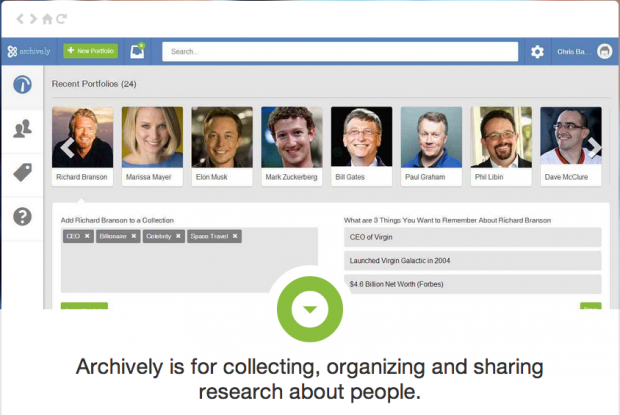The Startup Spotlight is a new series featuring interviews with startup founders who have created tools that are useful to the sourcing and recruiting community. Below is an interview with Archively founder Perri Gorman.
Tell us about the founders of Archively.
Before becoming an entrepreneur, I spent 13+ years in retained executive search covering really high-end financial services in New York, Europe, and Asia. I stumbled into this career as a sourcing intern. My first day someone handed me a paper directory with a highlighted name, a pen, a pad, and a phone. “Find out everyone who works with this guy.” Um…what? Turns out I was pretty good at it. I always loved to know the whole landscape, so I started mapping companies with intricate org charts. I am pretty obsessed with research and do that for everything now.
How did you end up in tech?
In a very roundabout way, really. I was fortunate to have a lot of success at a young age in all the ways you define success in our culture. But that path to “success” felt really empty to me. I was about to make Partner and the market was crashing (summer 2008) and I just had to get out. I met a guru in Bali, spent 5 days deconstructing every decision I had ever made and realized I had climbed the wrong mountain. I quit my career on the Monday back at work – much to the shock and dismay of everyone in my life. I then proceeded to burn my whole life to the ground and rebuild it from scratch.
Long story short, there was a lot of self-discovery in that period and countless mini-failures along the way – all valuable. One of those was trying to build a coaching business (total failure); another was falling in love with Twitter. That plugged me into early stage startups and the ability to get a look at new things. I remember the first time a developer made changes I suggested while beta testing. It was magical and I was in love. When I moved back to NYC in 2010, (after being in Hong Kong for 4 years), I immersed myself in the tech community. I went to every event, read blogs and books, looked at tons of products, watched pitches, learned about fundraising, and did a lot of beta testing for friends. I did that for a year before I was ready to start anything of my own.
How did Archively come about?
I’ve always had many ideas, (such as Unroll.Me), but I wanted to pick something I could really dedicate my whole life to for at least 10 years and say, “I can take this the whole way.” I had few criteria: a) It had to be in a market I knew inside out and liked, b) it had to start with a solution to a workflow problem I personally had, c) it had to be scalable, and, most importantly, d) it had to resonate with my core beliefs. Archively is an embodiment and extension of me. It is how I do everything. I deconstructed my own behaviors as I did when coming up with Unroll.Me, then talked to hundreds of people about how they were solving this problem.
What problem are you trying to solve?
Archively is for collecting, organizing and sharing research about people.
On a basic level, we are solving the “Where do you put it?” problem of online research, particularly while sourcing. I research people constantly. But there are huge gaps between the amount of information online, how it is discovered and how to keep it in a meaningful way that has long-term value. When we surveyed our beta testers, I found more than 50% of responders said they currently solved these problems by “Cutting and pasting into Word & Excel” even if they paid for LinkedIn or used a CRM solution. The “why” can vary, but one of the top reasons people do this kind of research (including why I do it) is for higher conversion rates on messages. This curation process takes looking at resumes and keywords to a point where you see a human being. When you see someone fully, you can communicate with them in a way that makes them want to respond to you.
The next issue to solve after “where do you put it” is “how do you access it.” Archively is working toward solving the problem of static data versus dynamic, living data. For instance, in most CRMs primary data collection is manual, form data. We are asking, what if the core data was living on the web, which changes old assumptions. We also don’t assume a connection, which most CRMs do. Alerting me about people in my network and giving insights inside my email are great, if I know them. What if I don’t?
We have lots of fun things in the pipeline along these lines, but I won’t give it all away now.
What financial support did you have to launch the business?
I saved money and then quit my job. I bootstrapped as long as I could before taking outside money, and I wouldn’t change a thing about that experience. It forced me make super-tight decisions. Making mistakes with your own money is super painful. I made one early mistake with a contractor and now I know how to make my money go really far.
Where do you stand right now with regard to funding?
Where do we stand now? Always be raising 🙂
Did anyone tell you this wasn’t going to be successful?
Success is a funny word. Conventional definitions of success bore me. By some measures, getting a working product into the hands of customers is a success, and a milestone I am proud of, but hopefully this is just one of many to come.
Many people play to win. I prefer to play to play, and I like a big game!

